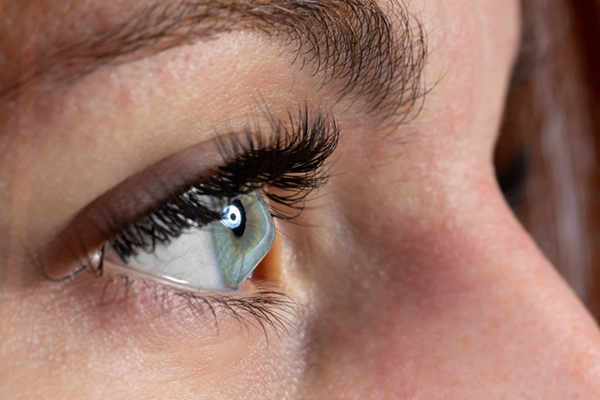Keratoconus
What is Keratoconus?

Keratoconus (KEHR-uh-toh-KOH-nus) is a very rare eye condition in which the normally round, dome-like cornea (the clear front window of the eye) becomes thin and develops a cone-like bulge. Keratoconus literally means “cone-shaped cornea.” Keratoconus is often specifically studied by a group of ophthalmologists known as corneal specialists. This does not mean a non FACS ophthalmologist cannot treat the disease, but it means that the corneal specialist has done a fellowship studying the cornea and corneal diseases.
The cornea is a very important part of your eye. As light enters the eye it refracts or focuses, the light rays so that you can see clearly. With keratoconus, the shape of the cornea is altered distorting your vision. Keratoconus can make some activities such as driving, typing on a computer, watching television or reading very difficult.
Symptoms of Keratoconus?
Keratoconus usually affects both eyes, however; symptoms in each eye may differ. Surprisingly, this is not an eye condition that affects only the elderly.
Symptoms usually start to occur in people who are in their late teens and early twenties and may include:
- a mild blurring of vision
- distortion of vision
- sensitivity to light
- glare
- slight irritation
What causes Keratoconus?
The cause of keratoconus is still not known. Some researchers believe that genetics play a role since an estimated 10% of people with keratoconus also have a family member with the condition.
How is Keratoconus treated?
Treatment will often depend on the severity of the condition. During the early stages, vision can be corrected with eyeglasses. As the condition progresses, rigid contacts may need to be worn so that light entering the eye is refracted evenly and vision is not distorted. You should also refrain from rubbing your eyes as this can aggravate the thin corneal tissue and make symptoms worse.
When good vision is no longer possible with contact lenses, a corneal transplant is recommended. This surgery is only necessary for about 10-20% of patients with keratoconus. In a corneal transplant, a cornea specialist removes the diseased cornea from your eye and replaces it with a healthy donor cornea. While a corneal transplant will relieve the symptoms of keratoconus, it may not provide you with flawless vision; eyeglasses or contacts may still be needed to achieve your best vision.
